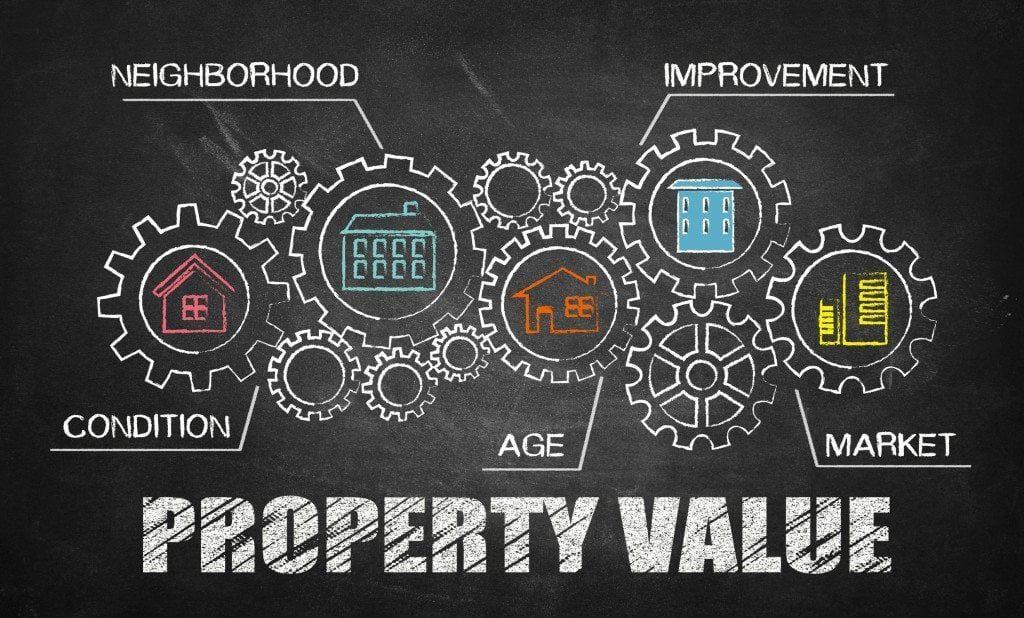
What are they? A home appraisal is a very educated guess regarding how much your property is worth.
Why are home appraisals important? No credible loan provider will lend you money for a house without an an appraisal.
In other words, to go with an extreme example, the bank does not want to be stuck with a property they lent the borrower a million dollars for but can only sell for $100,000 because that’s all it is worth. The home buyer shouldn’t want that either, needless to say.
So appraisals exist for valid reason, but what may make them a tense time for both sides is that they’re conducted after you’ve negotiated a price, agreed to buy or sell the house and signed the contract. So it’s in everyone’s best interest that the appraisal is near to the price that both seller and buyer have agreed on.
That said, in the event you are about to buy a house for a wildly inflated price, that doesn’t necessarily mean you’re obligated to purchase the property. But if you aren’t careful, it may mean just that.
The sales-and-purchase agreement should address the chance that your appraisal comes in under the purchase price, and enable you to terminate the agreement or renegotiate the price, says Robert Pellegrini, a real estate attorney located in Bridgewater, Massachusetts.
“If not, you could be obligated to cover the difference for a low-ball appraisal, and that could mean you’re on the hook for thousands,” Pellegrini says.
How do home appraisals differ from home inspections? The two frequently get confused, however they aren’t the same. Both an appraiser and inspector will walk around the house and take a good look at it (usually, the inspector comes first), however they are each at the house for different reasons. The appraiser is looking at the value of the property; the inspector is searching for any defects with the home that may cause you financial grief later.
Of course, in the event the appraiser notices a problem, she won’t ignore it. Should the appraiser spots a leaky sink or some loose wiring, she may request an inspection, says Staci Titsworth, regional manager for PNC Mortgage in Pittsburgh.
How long will the appraisal process take? It used to require a couple of days, but in recent years, ever since the recession – when federal guidelines changed the appraisal process – it’s more frequently a week or two. Underwriters can request additional information about the house than they could in past years, and gathering that data and photos usually takes time for the owner and real estate agent, which can mess up the closing date, putting everyone on edge.
What factors go into deciding the value of a house? Plenty. “The appraiser is looking at the key characteristics of the property including square footage, number of bedrooms and bathrooms, condition of the home, current recently sold comparables that are close in proximity and health and safety issues,” Titsworth says.
Having said that, most real estate professionals can tell you that it is the recently sold comparables – that is, houses that are similar to your own – that happen to be the primary factors in appraising a house. It’s all about property values.
If you’re a homeowner, exactly what can you do to enhance the process? Nothing, once it starts. “You’re powerless during the appraisal process,” Pellegrini says. But before the appraiser comes by, you can take these common-sense steps.
“It’s important to have the property look as good as it possibly can. You want to help the appraiser see your property’s potential so they will possibly reconcile a value closer toward the upper end of the range,” Jackson says.
After all, appraisers are only human. You could have an extremely cool house easily worth between, say, $300,000 and $325,000, however, if it’s junkie, it’s not hard to imagine the appraiser coming down nearer to $300,000.
To that end, Jackson says the day the appraiser comes, the lawn needs to be mowed, the landscaping weeded as well as the bushes trimmed. Clean the house. Get out the air freshener. Turn on the lights and open the blinds, Jackson says.
“It’s also very helpful to sit down the day or night before the appraiser arrives and make a list of repairs and improvements that have been done to the house over the past several years,” he says.
So if you’ve put on a new roof or purchased a new hot water heater, let the appraiser know, Jackson says. “Note anything you can think of – the appraiser will decide what is important to the value. It does not have to be formal or detailed. Just thoughtfully note everything so you can give it to the appraiser before he or she leaves.”
But don’t get too excited if you’ve spent a lot on repairs and renovations. Your $30,000 kitchen remodel could help the appraisal, however it won’t automatically mean your house is worth an additional $30,000.
What a good real estate professional will do. If you’re selling the house, your agent will probably be there to meet the appraiser and share the home improvements you’ve jotted down – and offer other data too.
